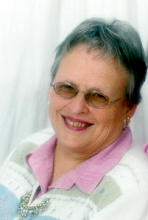REUNION
Part 6: Written by Tamara O’Brien Ralston as a birthday gift on Jan. 15, 1998 for her father Ron O’Brien
It's too dry for campfires this year. Instead, we put the children to bed and gather around a citronella candle. It occurs to me this circle of chairs is a good metaphor for our extended family - Impermanent, loosely organized, focused around a single flickering light. Beside me are two empty chairs. I hope no one sits in them. I am saving them for my grandparents. They would be here now, were they not dead. Jack and Clara -they are the reason for the circle, the light in the flame. I miss them. I head for my tent, uncomfortable with a nameless ache. Time passes too swiftly.
With Saturday comes the official gathering of the clan. About one hundred people have assembled for this tribal feast. Its Officially called the ~O'Brien picnic, a ridiculous understatement. This is a family that likes to eat; and many of those present are shaped like Dufur tumbleweed. In the haste to organize, we forget to say grace, an unacceptable break with tradition, an important ritual overlooked.
I coax my father into saying a prayer after the meal. He does it eloquently, thanking God for families past and present, bringing tears to my eyes.
The action begins. My sister is in charge of reunion activities, a task she tried to delegate to me. I researched this odd topic on the Internet and came up with several relays she found acceptable. She now has the bullhorn and is organizing the clan. Blow up balloon. Run to finish line. Sit on balloon. Place plastic spoon in mouth. Scoop jelly beans off ground. Run to finish line. Deposit beans in pie tin.
"What are normal people doing today?" I ask my uncle.
There is the ever popular bubble-gum blowing contest and the water balloon fight. 'Create your Family Crest' is my favorite activity. The actual O'Brien crest is topped by a dismembered arm, and backed by an improbable story about an early O'Brien in a row boat, hacking off his arm and throwing it ashore to stake claim to the land. Surely we can do better. Each family is given paper and colored markers. These crests turn out to be a creative way to update the group-at-large on what is significant in the lives of each family.
A fun-for-all-ages frolic in the swimming pool follows. Adults of all shapes battle youth of all sizes in a rollicking game of 'keep-away.' At dusk we eat again, then reconvene our circle to roast marshmallows over a Coleman stove. Traditional crackle, smell and ambiance is lacking from this pseudo-campfire, but the kids are happy. I am happy too. We laugh until our sides ache - at old stories, new stories, and foul smelling gas blamed on my cousin's chili. The real reunion is now taking place - a reuniting of people - a reconnecting of past with present.
The weekend is soon over. We shared meals, relived memories laughed heartily. The tent city vanishes even more quickly than it arose. We take a final family photo, exchange hugs, and say good-byes.
"Great to see you." "Thanks for coming." "Your children are beautiful. "
There are no false promises to keep in touch. The youngest of the clan are brushed off and herded to cars.
"Benjamin, get your sandals," someone yells.
Nine-year old Benjamin races creek-side, leaps in the air and disappears over the bank in a plume of dust. Emerging seconds later, sandals in hand, he is completely filthy. His parents roll their eyes. We laugh. It's a final tribute to camping Dufur-style.
"Shall we change his clothes?" his mother asks, "He is going to get the car all dirty. "
"Nah, the dust is everywhere," his father replies.
Yes, It is. It’s in our cars, our clothes, our cracks and crevices.
Some may have even seeped into our hearts -- connecting us to people and a past we have come to honor.
Leaving the park, we head for Dufur's cemetery with flowers for my grandparents. Arriving graveside, my father quickly stoops to pull weeds. Wordlessly, my sister and I follow suit. The weeds come out easily. This time of year it's even too hot for weeds. Like the weeds, we sunk our roots in this inhospitable ground. Like the weeds, we are pulled away, but always return. We continue weeding until we clear the graves. Tidying seems to give us a fleeting sense of control - as though by making things neat we make them right.
It is not right though. It's not right they were not at the picnic, not at the campfire, not laughing, passing gas and hugging children. It's not right they were not in the final family photograph. They should have been there -- in the center of it all - not here beneath this damn dust. This is not where grandparents belong. I am glad my sunglasses hide the tears making tracks down my dirty cheek.
"Don't kick up the dust son," my sister scolds.
My nephew is scuffling the toes of his shoes as we walk back to the car. He is kicking up clouds of dust the rest of us must walk through. Ancestral dust coats us. A bit of scripture echoes in my head, "All come from dust and to dust all return." In that moment, I know why I have come.
This dust has seen the blood, sweat and tears of us, the fruit and harvest of us, the very life and death of us. Kick it up son, I think. Kick it up good. Kick up a great billowing cloud we will see from far away. Help us remember. If we don't come kick up dust each year - we might forget.
This Dufur dust - it is us.
